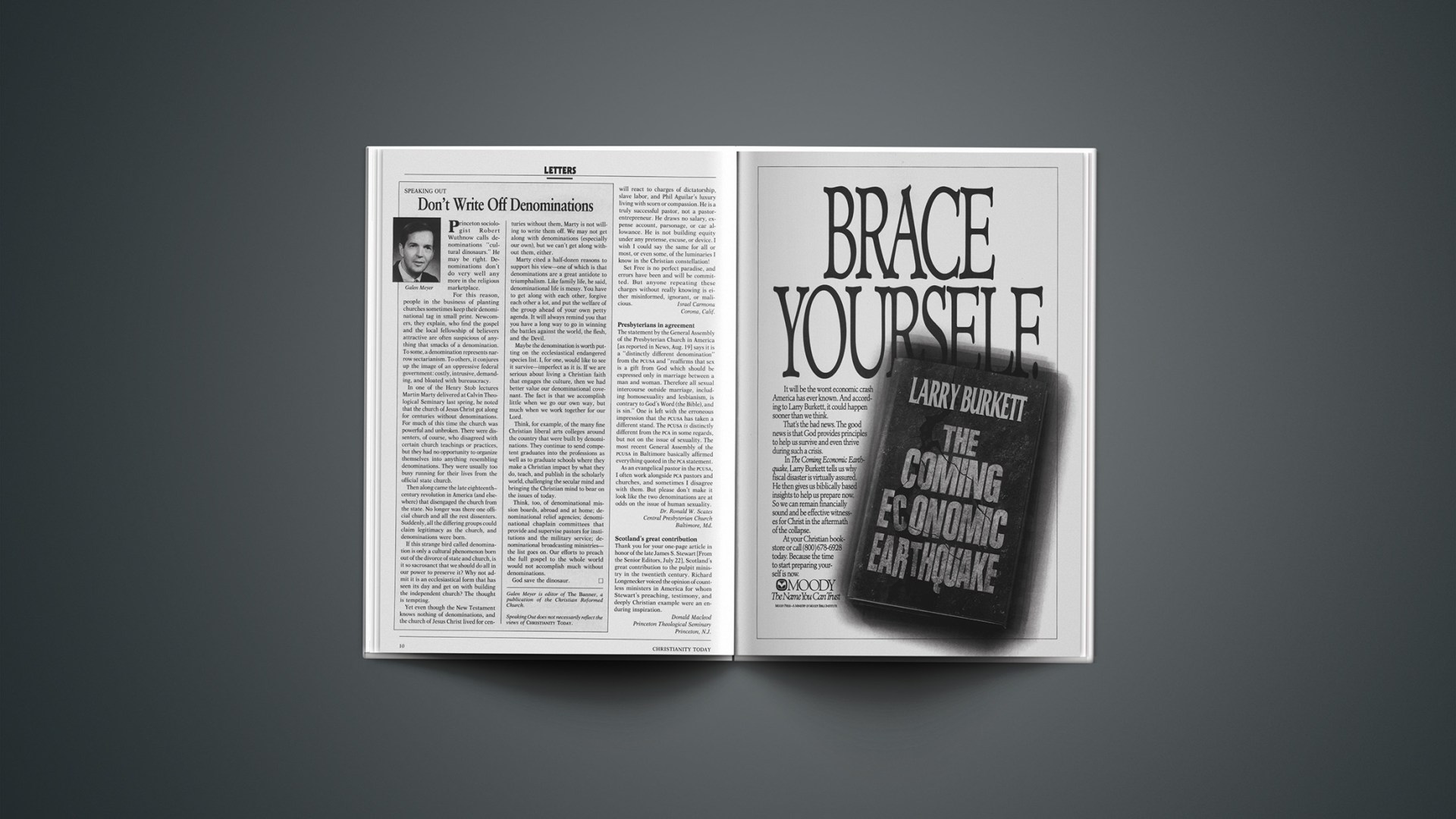Princeton sociologist Robert Wuthnow calls denominations “cultural dinosaurs.” He may be right. Denominations don’t do very well any more in the religious marketplace.
For this reason, people in the business of planting churches sometimes keep their denominational tag in small print. Newcomers, they explain, who find the gospel and the local fellowship of believers attractive are often suspicious of anything that smacks of a denomination. To some, a denomination represents narrow sectarianism. To others, it conjures up the image of an oppressive federal government: costly, intrusive, demanding, and bloated with bureaucracy.
In one of the Henry Stob lectures Martin Marty delivered at Calvin Theological Seminary last spring, he noted that the church of Jesus Christ got along for centuries without denominations. For much of this time the church was powerful and unbroken. There were dissenters, of course, who disagreed with certain church teachings or practices, but they had no opportunity to organize themselves into anything resembling denominations. They were usually too busy running for their lives from the official state church.
Then along came the late eighteenth-century revolution in America (and elsewhere) that disengaged the church from the state. No longer was there one official church and all the rest dissenters. Suddenly, all the differing groups could claim legitimacy as the church, and denominations were born.
If this strange bird called denomination is only a cultural phenomenon born out of the divorce of state and church, is it so sacrosanct that we should do all in our power to preserve it? Why not admit it is an ecclesiastical form that has seen its day and get on with building the independent church? The thought is tempting.
Yet even though the New Testament knows nothing of denominations, and the church of Jesus Christ lived for centuries without them, Marty is not willing to write them off. We may not get along with denominations (especially our own), but we can’t get along without them, either.
Marty cited a half-dozen reasons to support his view—one of which is that denominations are a great antidote to triumphalism. Like family life, he said, denominational life is messy. You have to get along with each other, forgive each other a lot, and put the welfare of the group ahead of your own petty agenda. It will always remind you that you have a long way to go in winning the battles against the world, the flesh, and the Devil.
Maybe the denomination is worth putting on the ecclesiastical endangered species list. I, for one, would like to see it survive—imperfect as it is. If we are serious about living a Christian faith that engages the culture, then we had better value our denominational covenant. The fact is that we accomplish little when we go our own way, but much when we work together for our Lord.
Think, for example, of the many fine Christian liberal arts colleges around the country that were built by denominations. They continue to send competent graduates into the professions as well as to graduate schools where they make a Christian impact by what they do, teach, and publish in the scholarly world, challenging the secular mind and bringing the Christian mind to bear on the issues of today.
Think, too, of denominational mission boards, abroad and at home; denominational relief agencies; denominational chaplain committees that provide and supervise pastors for institutions and the military service; denominational broadcasting ministries—the list goes on. Our efforts to preach the full gospel to the whole world would not accomplish much without denominations.
God save the dinosaur.
Galen Meyer is editor of The Banner, a publication of the Christian Reformed Church.
Speaking Out does not necessarily reflect the views ofCHRISTIANITY TODAY.










